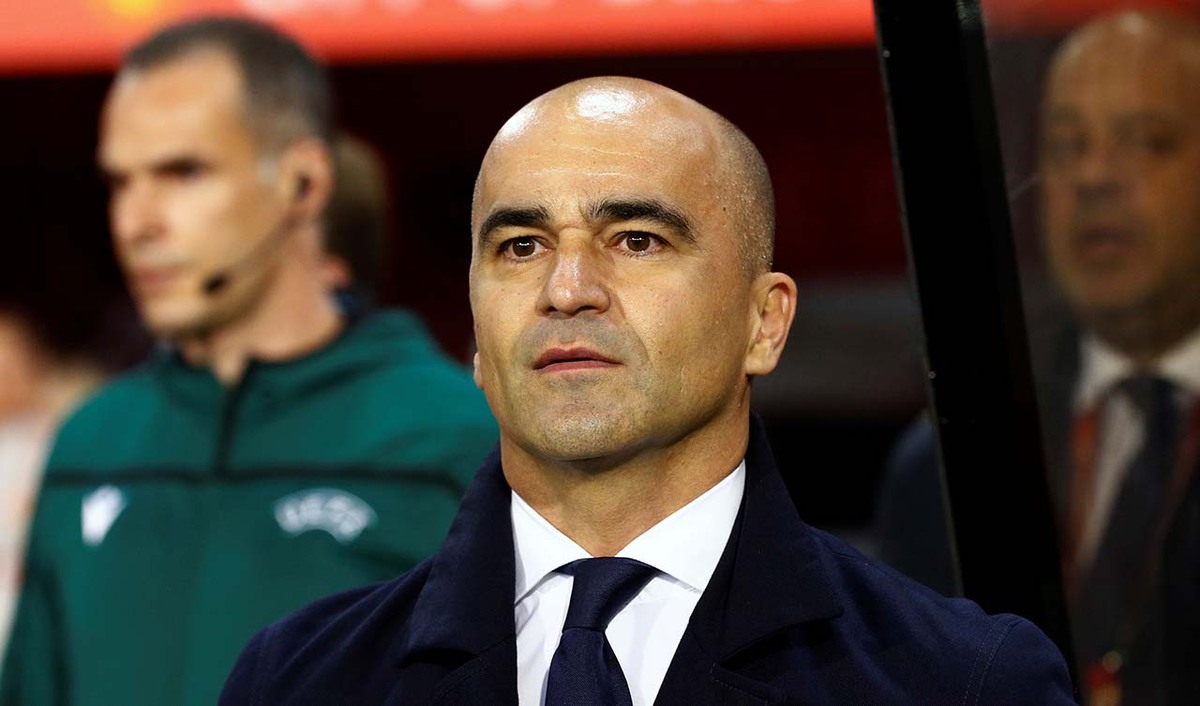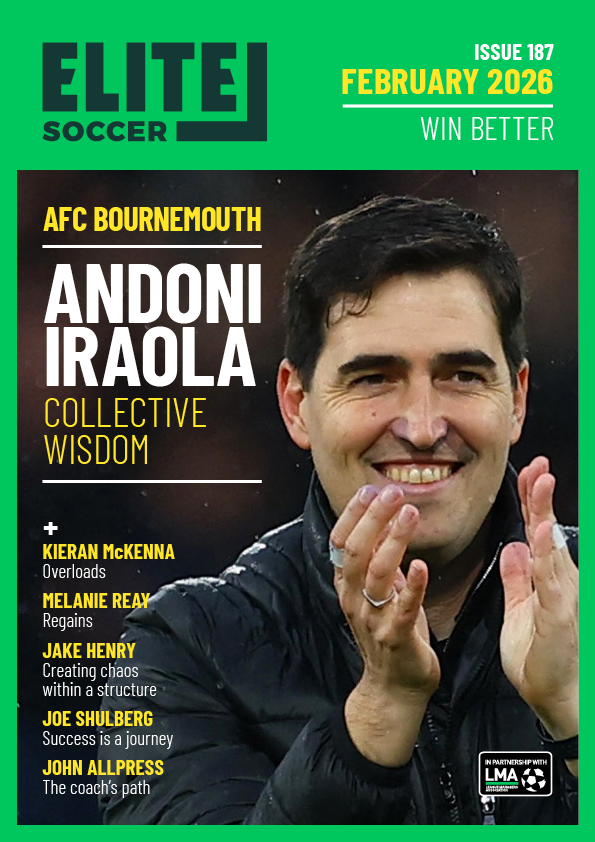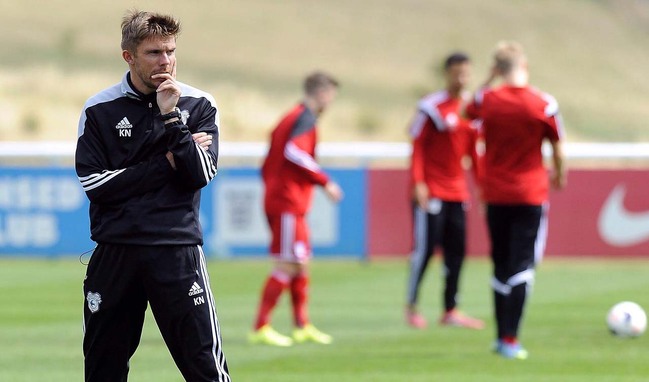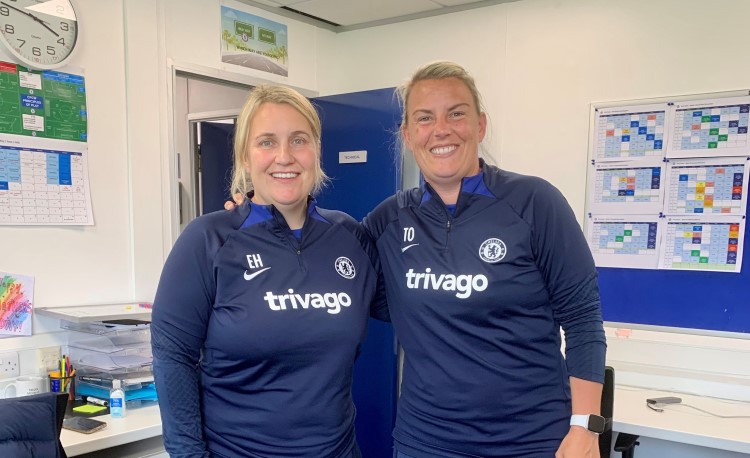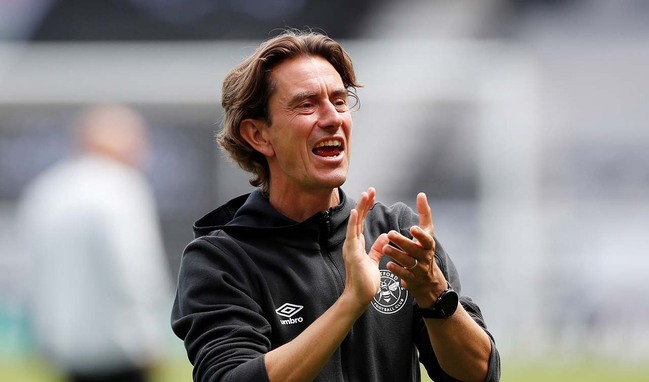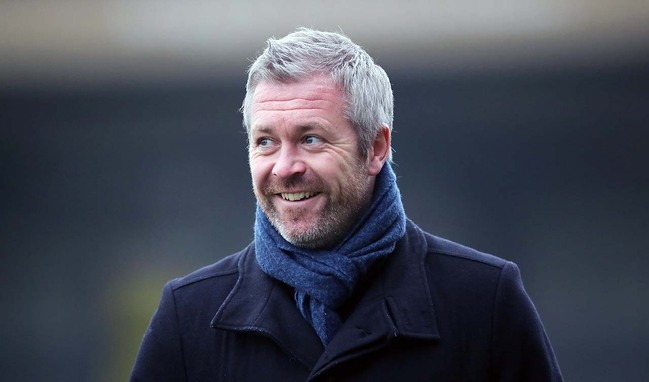NEXT ELITE SOCCER COACHING AWARD COHORT STARTS FEBRUARY 16 - ENROL NOW
Keeping competition tactical
At the heart of great man management is the ability to understand individuals and to be able to inspire them. Such qualities have been exemplified by Roberto Martinez as he has steered Wigan Athletic clear of relegation for two consecutive seasons.
In May 2011 Wigan pulled off a last day great escape away to Stoke. A year later, despite a daunting end of season fixture list, seven wins in nine matches ensured Wigan’s Barclays Premier League survival.
With the pressure on and the stakes high, Martinez’s team demonstrated a cohesive mental toughness and stepped up to fight to keep each other in the top flight. Martinez’s successful relationship with his squad mirrors his much coveted partnership with Chairman Dave Whelan. With a relationship spanning 17 years, theirs is a partnership based on trust, with a clear club business plan agreed from the outset. With the first three years of their joint project complete and the foundations of the next phase in place Roberto Martinez is aspiring to take Wigan to the next level.
You’ve now lived almost 50 per cent of your life in the UK and 50% in Spain. How has that shaped you culturally in your leadership style – how much of a multi faceted approach do you have?
“To understand individuals it is important to understand their background and any cultural barriers that might hinder their understanding of what you want them to do. When I arrived in Wigan from Spain in 1995 I really got a cultural shock. You tend to assume that the way you have been raised and what you know is the only way that exists in the rest of the world. When you leave your own country you realise that there are other cultures and other ways to understand things. You quickly realise that there is a variety of options of how you see life. So it’s very, very important to be open minded and be respectful of every way of working and understanding cultures means understanding individuals. So my approach has certainly been influenced by my time spent in both Spain and the UK.”
What was it like growing up in Balaguer, Catalonia and how did that upbringing shape you?
“Balaguer is a very family orientated place with a population of only 15,000 people. You get to trust everyone straight away because when you walk down the street you feel like everyone knows you and which family you are from. Leaving my family home at 16 to play football and go to university in Zaragoza did almost feel like being thrown into the Wild West and I was forced to mature very quickly. However, moving to Wigan in 1995 when I was 21 really was the catalyst that broadened my thinking. I learnt to live in a different culture and I realised that there were different ways to play football outside of what we had been taught in Spain. In many ways you are shaped by your own experiences. When I look back now, I realise how fortunate I was growing up to have such a strong and protective family environment before arriving in England to face the fantastic challenge of a new life and football culture within the British game.”
Your father had a very positive influence on you; tell us about his football career and how he influenced your values and the way you manage?
“My dad was a big, big influence on the way that I have subsequently done things. He always set standards in whatever he did. He was born in Zaragoza and was a footballer who moved around during his career before settling in Balaguer. When he stopped playing he enjoyed being very committed to spending time with our family. He opened a shoe shop whilst carrying on managing amateur clubs. In everything he did, he was so, so professional. He taught me to have real standards in whatever you do - it wouldn’t have mattered if he’d been managing a local side or managing Barcelona, he’d have approached it in the same manner. I always have his strong values in my mind. He had a real commitment to the game and never viewed it as a job, a chore or an activity, it was his passion. I am thankful for his influence on me because you must have a passion for football to survive its intensity.”
At what stage did you decide you wanted to be a manager?
“I never had early leanings towards management probably because I always felt it could only be a great substitute to playing for me. I always told my friends that they should go on playing for as long as they could. In 2007, I ended up going completely against my own advice because Huw Jenkins at Swansea City asked me to take over as Swansea manager. It was the right opportunity and the right dressing room to start expressing my ideas about the game but I really felt that I had to give up my playing career much earlier than I wanted to. I kidded myself of course by remaining registered as a player. However, I knew I would never accept being player manager because I don’t believe you can do both jobs.”
You are committed to your style of playing free flowing, offensive football. How did your philosophy evolve?
“Being raised in Spain, I was a technical player and my philosophy of how I like to see the game played evolved from there. When I told people in Spain that I had decided to play for Wigan Athletic in the old 3rd Division they told me I’d only last 6 months because the British game and lower leagues wouldn’t suit me. In a way I saw it as a big challenge just to be able to be useful to my manager at Wigan. To be able to affect the game from a technical perspective enabled me to develop my tactical knowledge greatly. I couldn’t compete with the opposition in a physical way so I had to think tactically and hurt them by keeping the ball, being more patient and by finding the chance to score rather than chasing it. Effectively, I am a product of my playing experiences in Spain, what type of football I love to watch and how I had to play in the lower English football leagues in order to have a career.”
How would you describe your style of management – is it a conscious style of leadership or an extension of your personality?
“I like to lead through aspiration. In a way this is an extension of my own personality. I always had great aspirations as a player and as a person and that always enabled me to give myself direction. I feel that your own aspirations can be fitted into a team dynamic very easily. I’ve never believed in forcing people to do things. Even when you are the manager, at the forefront and setting the direction, you are still part of a team, a dream and an aspiration. I only want to manage players that want to achieve. I don’t see any long term benefit of being in a position where you have to force or punish players to reach certain standards. I like to build football clubs and put things in place so that the club is going to continually develop, and get their rewards. I fully believe that you can only achieve such rewards through aspiration.”
The nature of your relationship with Dave Whelan will be coveted by many; he’s committed to the plan you both drew up for Wigan and incredibly loyal. Why do you work so well together?
“From my point of view our strong relationship started on the first day that I’d signed to be manager of Wigan Athletic. We went for a meal and he said to me ‘For three years you are going to be the manager of Wigan Athletic. If we get relegated twice you are going to be the manager of Wigan Athletic in League One.’ From that moment on I knew I could trust him, I knew I could make decisions for the long term and that I could build a football club with his support. When, as young Spaniards myself, Jesus Seba and Isidro Diaz arrived in Wigan in 1995 we were coming into the unknown. Dave Whelan was great with us; he gave us guidance and understood us. The Chairman played the game at a high level and he understands the game. I am well aware of how privileged I am to have such a good relationship with him.”
You have a Post Graduate Degree in Business Management. In what ways has studying Business Management been of benefit to you in your football career?
“As a manager you need to have as much information as you can when you need to make decisions. I’ve found that my Post Graduate Degree has been very beneficial in helping to put club strategy into place and draw up plans so that the clubs I have managed are not just working game by game or season by season. You can really set-out your football ideology and not only decide how you are going to win your game this weekend but how you are aiming to win your football club’s games three years down the line. Having this qualification has helped to challenge me and open my mind. “
Editor's Picks
Attacking transitions
Deep runs in the final third
Using the goalkeeper in build-up play
Intensive boxes drill with goals
Penetrating the final third
Creating and finishing
My philosophy
Pressing initiation
Compact team movement
Coaches' Testimonials

Alan Pardew

Arsène Wenger

Brendan Rodgers

Carlos Carvalhal

José Mourinho

Jürgen Klopp

Pep Guardiola

Roy Hodgson

Sir Alex Ferguson

Steven Gerrard
Related
Coaches' Testimonials

Gerald Kearney, Downtown Las Vegas Soccer Club

Paul Butler, Florida, USA

Rick Shields, Springboro, USA

Tony Green, Pierrefonds Titans, Quebec, Canada
Join the world's leading coaches and managers and discover for yourself one of the best kept secrets in coaching. No other training tool on the planet is written or read by the calibre of names you’ll find in Elite Soccer.
In a recent survey 92% of subscribers said Elite Soccer makes them more confident, 89% said it makes them a more effective coach and 91% said it makes them more inspired.
Get Monthly Inspiration
All the latest techniques and approaches
Since 2010 Elite Soccer has given subscribers exclusive insight into the training ground practices of the world’s best coaches. Published in partnership with the League Managers Association we have unparalleled access to the leading lights in the English leagues, as well as a host of international managers.
Elite Soccer exclusively features sessions written by the coaches themselves. There are no observed sessions and no sessions “in the style of”, just first-hand advice delivered direct to you from the coach.
